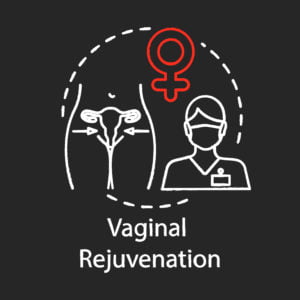The human body is a convoluted and intricate machine that requires constant maintenance and care to function at its best. And while we may take steps to maintain our health, such as eating well and exercising regularly, there is no substitute for the knowledge and expertise of a primary care physician.
But what exactly is a primary care physician, and why are they so important? This article will explore the intricacies of primary care medicine and examine how a primary care physician can support your health and well-being.
From the continuity of care to prevention and early detection of illnesses, the benefits of having a primary care physician are numerous and far-reaching. So let’s dive in and discover why establishing a relationship with a primary care physician is essential to maintaining a healthy and fulfilling life.
1.) Continuity Of Care
Continuity of care is a critical aspect of healthcare that refers to the coordination and consistency of medical services over time. With the help of a primary care physician, patients can establish a long-term relationship with a medical provider who can provide continuous and comprehensive care.
But why is continuity of care so important? It ensures patients receive consistent care tailored to their unique needs and health goals. Additionally, it allows for detecting and managing health issues before they become more serious, potentially preventing costly emergency room visits and hospitalizations.
In primary care medicine, continuity of care means that patients have access to a medical provider who knows their medical history, medications, and any ongoing health concerns. This ongoing care can particularly benefit individuals with chronic conditions, such as diabetes or high blood pressure, who require ongoing management and monitoring.
Furthermore, primary care physicians can act as a central point of contact for patients, coordinating with specialists and other healthcare providers as needed. This ensures patients receive integrated care focused on their overall health and well-being rather than treating individual symptoms.
2.) Prevention And Early Detection
Prevention and early detection are compulsory elements of good healthcare. Primary care physicians are essential in ensuring patients receive the preventive care they need to stay healthy.
One of the primary ways primary care physicians promote prevention and early detection is through regular check-ups and screenings. By scheduling routine appointments with a primary care physician, patients can receive regular physical exams and screenings for common health issues, such as high blood pressure, high cholesterol, and cancer.
But prevention and early detection benefits extend beyond just catching health issues early. Primary care physicians can help patients maintain good health and lessen their chance of developing chronic conditions by identifying potential health risks and implementing preventive measures.
For example, primary care physicians can provide counseling on healthy lifestyle behaviors, such as exercise and nutrition, and offer support for smoking cessation or weight loss. They can also help patients manage chronic conditions through medications and other treatments, potentially preventing more serious complications.
In addition to regular check-ups and screenings, primary care physicians can provide education and resources on various health topics, from disease prevention to mental health and wellness. By promoting health literacy and empowering patients to take control of their health, primary care physicians can help individuals live healthier, more fulfilling lives.
3.) Management Of Chronic Conditions
Managing chronic conditions can be challenging and ongoing, requiring careful monitoring, medication management, and lifestyle modifications. Fortunately, primary care physicians are well-equipped to provide comprehensive care and support for individuals with chronic conditions.
One of the practical benefits of having a primary care physician for managing chronic conditions is their continuity of care. With a long-term relationship, primary care physicians can monitor patient health changes and adjust their treatment plans accordingly.
Additionally, primary care physicians can work with patients to devise personalized care pursuits that address their unique needs and goals. For example, a patient with diabetes may receive guidance on dietary modifications, exercise recommendations, and insulin management, all tailored to their health status and lifestyle.
Moreover, primary care physicians can help patients navigate the complex healthcare system, coordinating care with specialists and other healthcare providers as needed. This integrated care can be particularly beneficial for individuals with multiple chronic conditions or complex medical needs, ensuring they receive the comprehensive care they need to manage their health effectively.
4.) Coordination Of Care
Care coordination is a vital aspect of healthcare that ensures patients receive integrated, comprehensive care that addresses their unique needs and goals. Primary care physicians are crucial in coordinating care, acting as a central juncture of patient communication, and working closely with other healthcare providers to guarantee patients receive the highest quality care possible.
One of the primary ways in which primary care physicians coordinate care is through the referral process. If a patient requires specialized care or treatment, a primary care physician can direct them to a specialist or other healthcare provider with the necessary expertise. This type of coordinated care ensures that patients receive the proper care from the right provider, avoiding unnecessary treatments or tests and reducing the risk of medical errors.
Moreover, primary care physicians can provide ongoing communication and collaboration with specialists and other healthcare providers, ensuring patients receive integrated care focused on their overall health and well-being. This type of care coordination can be particularly beneficial for individuals with multiple chronic conditions or complex medical needs, ensuring their care is well-managed and optimized for their unique needs.
In addition to coordinating care with specialists, primary care physicians can support patients and their families, helping navigate the healthcare system and providing guidance and education on various health topics. This support can be critical for patients facing serious or chronic health issues, helping reduce stress and improve overall outcomes.
Takeaway
If you’re seeking a primary care physician who can provide comprehensive, personalized care and support, look no further than CMA Primary Care & MedSpa. Our team of highly qualified primary care physicians is engaged in delivering the highest quality care for our patients, focusing on continuity of care, prevention and early detection, management of chronic conditions, and coordination of care.
By establishing a long-term relationship with a primary care physician at CMA Primary Care & MedSpa, you can benefit from a range of services, including regular check-ups and screenings, personalized care plans, and ongoing support and education on a range of health topics.
So don’t wait – take the first step towards better health today by scheduling an appointment with one of our primary care physicians. Contact CMA Primary Care & MedSpa today!







